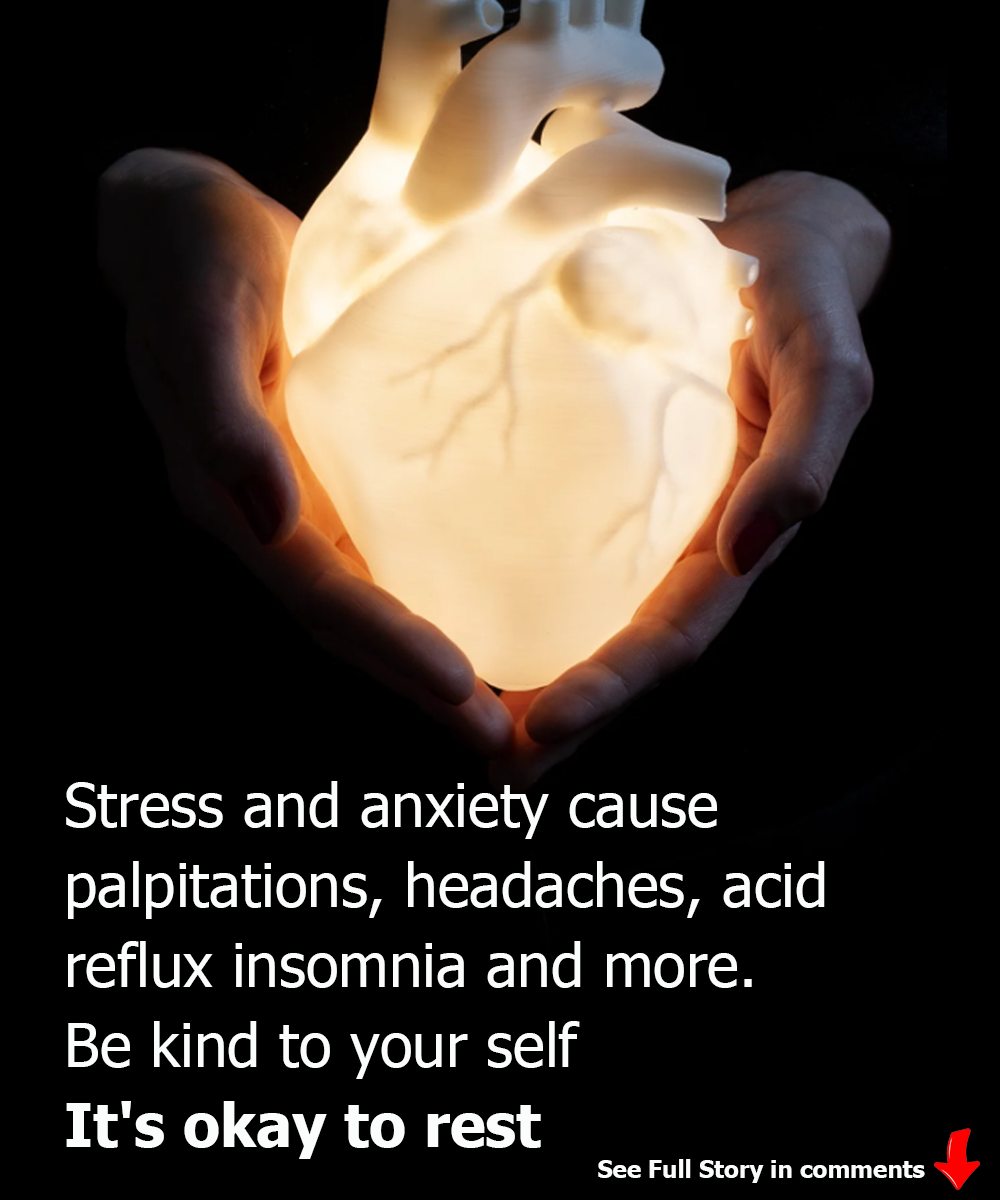
Stress and anxiety aren’t just feelings you experience during tough times — they can actually leave a lasting impact on your physical health. Although occasional stress is a normal part of life, chronic stress and ongoing anxiety can trigger a range of symptoms that go far beyond emotional discomfort. Many people don’t realize just how deeply these mental states can influence their bodies, sometimes in ways that aren’t immediately obvious.
Let’s dive into seven major symptoms that stress and anxiety can cause — and why recognizing them early can make a big difference in your overall well-being.
1. Constant Headaches
One of the first signs that stress and anxiety are taking a toll on your body is frequent headaches. Tension headaches, in particular, are very common. These headaches often feel like a tight band squeezing around your head and are typically caused by muscle tension in the neck, shoulders, and scalp.
When you’re stressed, your body tends to stay in a “fight or flight” mode, keeping your muscles tight and increasing your sensitivity to pain. Over time, this tension can lead to persistent headaches that disrupt your daily life.
What to do: Incorporating relaxation techniques like deep breathing, meditation, or gentle stretching can help ease muscle tension and reduce headache frequency.
2. Digestive Problems
Have you ever had a stomachache right before a big presentation? That’s no coincidence. Stress and anxiety have a direct impact on your digestive system.
Chronic stress can cause symptoms like nausea, indigestion, constipation, diarrhea, and even conditions like irritable bowel syndrome (IBS). The gut and brain are closely connected — so when your mind is in distress, your stomach often is too.
What to do: Eating a balanced diet rich in fiber, staying hydrated, and practicing mindfulness during meals can help support your digestive health even during stressful times.
3. Insomnia or Trouble Sleeping
Stress and anxiety are notorious for robbing people of a good night’s sleep. When your mind is racing with worries or you’re constantly feeling on edge, falling asleep — and staying asleep — becomes a real challenge.
Insomnia related to stress not only leaves you exhausted but also weakens your immune system, impairs concentration, and worsens your mood, creating a vicious cycle.
What to do: Establish a calming nighttime routine. Limit screen time before bed, avoid caffeine in the evening, and create a peaceful sleep environment to improve your chances of restful sleep.
4. Chest Pain and Rapid Heartbeat
It’s not uncommon for people dealing with anxiety to feel chest pain, tightness, or a racing heart. While these symptoms can be alarming, they are often the body’s response to increased adrenaline and heightened alertness.
However, chest pain should never be ignored, as it can also signal serious heart issues. If you’re experiencing chest discomfort — especially if it’s new or severe — it’s crucial to seek medical attention immediately to rule out any life-threatening conditions.
What to do: Regular exercise, breathing exercises, and learning relaxation strategies can help calm your cardiovascular system over time.
5. Weakened Immune System
Believe it or not, prolonged stress and anxiety can suppress your immune function. When your body is constantly flooded with stress hormones like cortisol, it becomes less effective at fighting off infections.
That’s why you might find yourself catching colds more often or taking longer to recover from illnesses when you’re under pressure.
What to do: Focus on supporting your immune system by maintaining a healthy diet, getting enough sleep, managing stress levels, and incorporating moderate exercise into your routine.
6. Muscle Tension and Body Aches
Chronic stress keeps your muscles in a constant state of guardedness. Over time, this leads to tightness, stiffness, and even widespread aches and pains throughout your body.
People dealing with stress often report pain in their neck, shoulders, and back. Left unchecked, muscle tension can reduce flexibility and mobility, setting the stage for long-term discomfort.
What to do: Activities like yoga, tai chi, massage therapy, and even simple stretching exercises can work wonders in releasing built-up tension and restoring comfort.
7. Fatigue and Low Energy
When you’re constantly stressed or anxious, your body is working overtime behind the scenes. The mental and emotional strain can leave you feeling drained, even after a full night’s sleep.
Fatigue caused by stress can feel overwhelming — making even basic tasks seem like monumental challenges. It’s your body’s way of signaling that it needs a break.
What to do: Listen to your body. Prioritize rest, manage your workload realistically, and give yourself permission to slow down when needed.
Final Thoughts: Take Stress Seriously
Stress and anxiety are not just emotional issues; they can take a serious toll on your body if left unmanaged. Recognizing the signs early is key to preventing bigger health problems down the road.
If you notice any of these symptoms affecting your life, don’t brush them off. Small steps — like building healthier habits, seeking support from friends, practicing mindfulness, or talking to a mental health professional — can make a huge difference in regaining control over your health and happiness.
Your mind and body are deeply connected — take care of both, and you’ll be setting yourself up for a stronger, healthier future.





